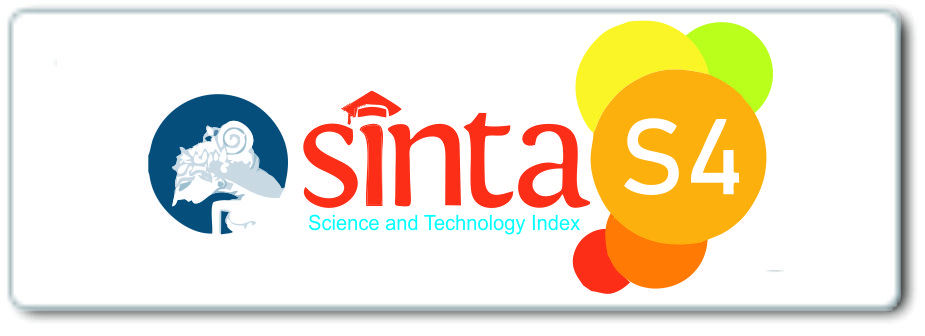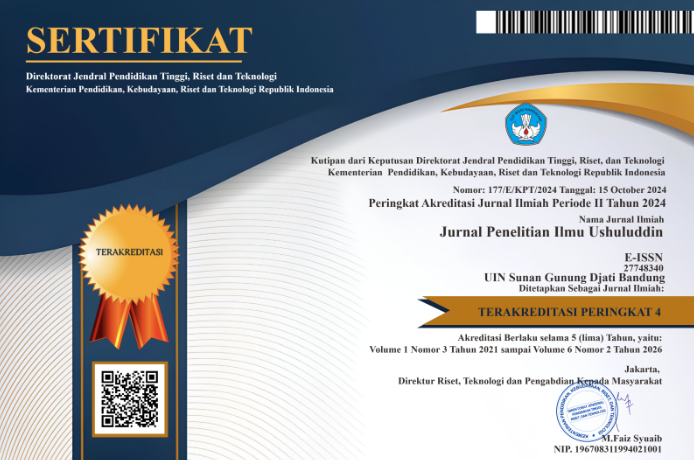Manusia dalam Pandangan Ali Syariati dan Abdurrahman Wahid: Studi Filsafat Manusia
DOI:
https://doi.org/10.15575/jpiu.16876Keywords:
Abdurrahman Wahid, Ali Shariati, HumansAbstract
At this time, human problems and all things related to it, more and more diverse. Unfortunately, science and technology, which were originally expected to provide a solution to these problems, have instead become a source of new problems. On the other hand, humans who are equipped with reason to think and ask questions, constantly try to explore the meaning of the mystery of who he is. Many thinkers have contributed their thoughts on the concept of man, but of these, it gives the impression that the deeper the meaning of man is dug, the more the basis for this search will not be found. This study aims to examine further the meaning of humans, so that by revealing the meaning of humans, humans can answer complex problems in themselves. The research method used is a qualitative method, based on the primary books of the characters being studied, and secondary data that supports these primary sources. This research resulted in a finding that humans have an essence where it is this essential thing that ultimately makes a person truly human.
References
Bakri, S., & Abdullah, M. (2004). Jombang-Kairo, Jombang-Chicago: Sintesis Pemikiran Gus Dur dan Cak Nur dalam Pembaruan Islam di Indonesia. Tiga Serangkai.
Cahyanto, F. (2020). Filsafat Manusia Ali Syari’ati: Kesadaran dan Kebebasan Manusia di Era Revolusi Teknologi 4.0. Academic Journal of Islamic Principles and Philosophy, 1(1), 41–62.
Darmalaksana, W. (2022). Panduan Penulisan Skripsi dan Tugas Akhir. Fakultas Ushuluddin UIN Sunan Gunung Djati Bandung.
Gottschalk, L. (1985). Mengerti Sejarah, terj. Nugroho Notosusanto. Jakarta: Penerbit Universitas Indonesia.
Hamid, M. (2010). Gus Gerr: Bapak Pluralisme & Guru Bangsa. Pustaka Marwa.
Harari, Y. N. (2018). Homo Deus: Masa Depan Umat Manusia. Pustaka Alvabet.
Hardiman, B. (2013). Humanisme dan Sesudahnya. Kepustakaan Populer Gramedia.
Hardiman, F. B. (2021). Aku Klik Maka Aku Ada: Manusia dalam Revolusi Digital. PT Kanisius.
Kamus Besar Bahasa Indonesia (KBBI). (2016). In Kementerian Pendidikan dan Budaya.
Mahmud, A. (2014). Insan Kamil Perspektif Ibnu Arabi. Sulesana: Jurnal Wawasan Keislaman, 9(2), 33–45.
Malaky, E., & Alkaf, I. (2004). Ali Syari’ati: Filosof Etika dan Arsitek Iran Modern. Penerbit Teraju.
Moelong Lexy, J. (2006). Metodologi Penelitian Kualitatif. Rosdakarya.
Nawawi, H. H. (2005). Metode Penelitian Bidang Sosial. Universitas Sintuwu Maroso.
Russell, B. (2002). Sejarah Filsafat Barat dan Kaitannya dengan Kondisi Sosio-Politik dari Zaman Kuno Hingga Sekarang. Pustaka Pelajar.
Saleh, H. (2014). Filsafat Manusia (Studi Komparatif Antara Abdurrahman Wahid dan Murtadlâ Muthahhari).
Salleh, N. M., Yama, P., Zakaria, F., & Haridi, N. H. M. (2018). Historiografi Liberalisme dalam Kalangan Masyarakat Barat: The Liberalism Historiography Among The Western Society. Al-Irsyad: Journal of Islamic And Contemporary Issues, 3(1), 67–79.
Setyo Wibowo, A. (2020). Eksistensialisme Jean-Paul Sartre (1905-1980). Basis, 69(01–02), 4–15.
Shofa, M. (2012). Manusia dalam Perspektif Eksistensialisme: Studi Komparasi Soren Kierkegaard dan Ali Syari’ati. UIN Sunan Ampel Surabaya.
Sobary, M. (2013). Jejak Guru Bangsa. Gramedia Pustaka Utama.
Syari’ati, A. (1982). Tentang Sosiologi Islam. Terj. Saifullah Wahyuddin. Yogyakarta: Ananda.
Syari’ati, A. (1983). Haji. Bandung: Pustaka.
Syariati, A. (1987). Tugas Cendekiawan Muslim. Terj. Amin Rais (Jakarta: Rajawali Press, 1984).
Syariati, A. (1995). Membangun Masa Depan Islam, Pesan untuk para Intelektual Muslim, ter. Rahmani Astuti (Bandung: Mizan, 1993).
Syariati, A. (2013). Melawan Hegemoni Barat. Yogyakarta: Rausyanfikr Institute.
Tafsir, A. (2004). Filsafat Umum: Akal dan Hati Sejak Thales Sampai Capra. Remaja Rosda Karya.
Tjahyadi, S. (2008). Manusia dan Historisitasnya Menurut Martin Heidegger. Jurnal Filsafat, 18(1), 51–63.
Wahid, A. (2001). Pergulatan Negara, Agama, dan Kebudayaan. Desantara.
Wahid, A. (2007). Islam Kosmopolitan: Nilai-nilai Indonesia & Transformasi Kebudayaan. Wahid Institute.
Downloads
Published
Issue
Section
License
Authors who publish in Jurnal Penelitian Ilmu Ushuluddin agree to the following terms:
- Authors retain copyright and grant the journal right of first publication with the work simultaneously licensed under an Attribution-ShareAlike 4.0 International (CC BY-SA 4.0) License that allows others to share the work with an acknowledgment of the work's authorship and initial publication in this journal.
- Authors are able to enter into separate, additional contractual arrangements for the non-exclusive distribution of the journal's published version of the work (e.g., post it to an institutional repository or publish it in a book), with an acknowledgment of its initial publication in this journal.
- Authors are permitted and encouraged to post their work online (e.g., in institutional repositories or on their website) prior to and during the submission process, as it can lead to productive exchanges, as well as earlier and greater citation of published work (See The Effect of Open Access).












